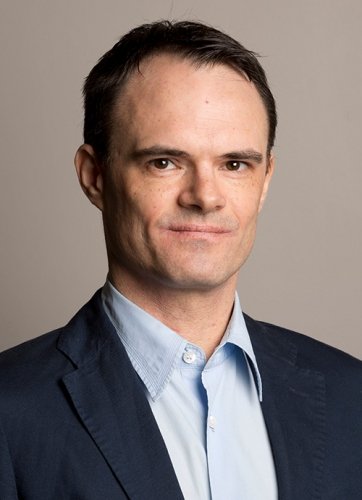We are delighted to announce that Dr. Amy Kapit will join the Peace and Conflict Studies program, starting Fall 2019.
Professor Kapit will offer a range of exciting new courses:!
- Humanitarianism: Education and Conflict
- Afghanistan: Where Central and South Asia Meet
- Peace Education
- Senior Capstone Seminar
(Scroll down to the bottom of this post for course descriptions!)

Dr. Amy Kapit
Dr. Kapit graduated from New York University’s Steinhardt School of Culture, Education, and Human Development with a Ph.D. in International Education in 2016. She holds a B.A. in Religion and Peace and Conflict Studies from Swarthmore College.
Dr. Kapit’s research, scholarship, and teaching focuses on the relationships between education and conflict, and on the field of education in emergencies—the provision of education as a form of humanitarian aid. Most recently, she has worked as the Research Director of the Global Coalition to Protect Education from Attack (GCPEA) and as an Adjunct Assistant Professor in International Education at NYU Steinhardt, where she has taught courses on Politics, Education, and Conflict and Qualitative Research Methods. As GCPEA Research Director, she has developed the organization’s research agenda related to monitoring and reporting violence committed against students, educators, and educational facilities in areas of armed conflict and political violence. She was the lead author of the report Education under Attack 2018.
During her graduate and post-graduate career, Dr. Kapit has conducted research on education in emergencies in the West Bank and Gaza Strip and in Afghanistan. From 2014 to 2016, she was the Research Director of the Assessment of Learning Outcomes and Social Effects of Community-Based Education in Afghanistan. The study, led by professors at New York University and the University of California—Berkeley, examined a community-based education program being implemented by two NGOs in approximately 200 villages in Afghanistan.
In addition, Dr. Kapit has studied the origins of the global movement to protect education from attack and how that new international advocacy network has—or has not—shaped efforts to address violence, harassment, and threats against students, teachers, and educational facilities in places where these attacks occur. Specifically, she has conducted research on the humanitarian community’s efforts to protect students, teachers, and schools in the Middle East.
Dr. Kapit has previously worked on projects with numerous organizations focusing on education, child protection, and children’s rights, including Human Rights Watch, Education Above All, the Inter-Agency Network for Education in Emergencies (INEE), Save the Children, the Scholars at Risk Network, and UNESCO.
We look forward to having such a remarkable scholar and teacher join our program!

New courses by Prof. Amy Kapit:
PEA 072 Humanitarianism: Education and Conflict
(Fall 2019, Fall 2020)
This course will introduce students to the theory and practice of humanitarianism and, specifically, the provision of education as a humanitarian intervention—what practitioners call “education in emergencies.” The course will delve into the foundations and history of humanitarianism and track how humanitarian intervention evolved over the course of the 20th century, broadening and deepening in scope. It will explore continuing debates over the appropriateness of education as a humanitarian intervention and examine what types of educational interventions are prioritized by humanitarian agencies, as well as the goals that those interventions are trying to achieve. For example, what is the relationship between education and conflict and how do education in emergencies providers intervene to alter that relationship? Students will have the opportunity to study specific examples of education in emergencies programming in countries such as Afghanistan, Colombia, Nepal, Sierra Leone, and Syria, and to hear from guest speakers working in the field of education in emergencies. The course will encourage students to apply what they have learned to policy-oriented exercises.
PEAC 052 Afghanistan: Where Central and South Asia Meet
(Fall 2019, Fall 2020)
This course examines conflict, politics, culture, and daily life in present day Afghanistan. Occupying a historic crossroads in Asia, Afghanistan is a place of regional, ethnic, and cultural diversity. Since the beginning of the twentieth century, internal and external actors, including the British Empire, Pashtun dynasties, the Soviet Union, the Taliban, the United States and its allies, and the Islamic State, have battled for control of Afghanistan. Today, as conflict continues, the international community exerts significant influence on Afghanistan’s politics, security, economy, and social institutions. This course will explore themes related to conflict, peacemaking, statebuilding, and international intervention, and their intersection with cultural and ethnic diversity, religion, gender norms, and the lived experiences of Afghan people. Students will read memoirs, literature, and scholarly work from various disciplines.
PEAC 022 Peace Education
(Spring 2020, Spring 2021)
In this introductory course, students will explore the historical, ethical, and theoretical foundations of peace education, a subfield of peace and conflict studies. Students will consider different approaches towards peace education: should peace education be oriented towards eliminating physical violence? Facilitating co-existence and understanding? Teaching human rights or citizenship? Empowering the dispossessed and eliminating inequality and injustice? Is peace education best integrated in the existing schooling system, an extracurricular activity, or should it be distinct from schooling? Using case studies, students will critically examine different types of peace education and explore existing research on how they do—or do not—work.









